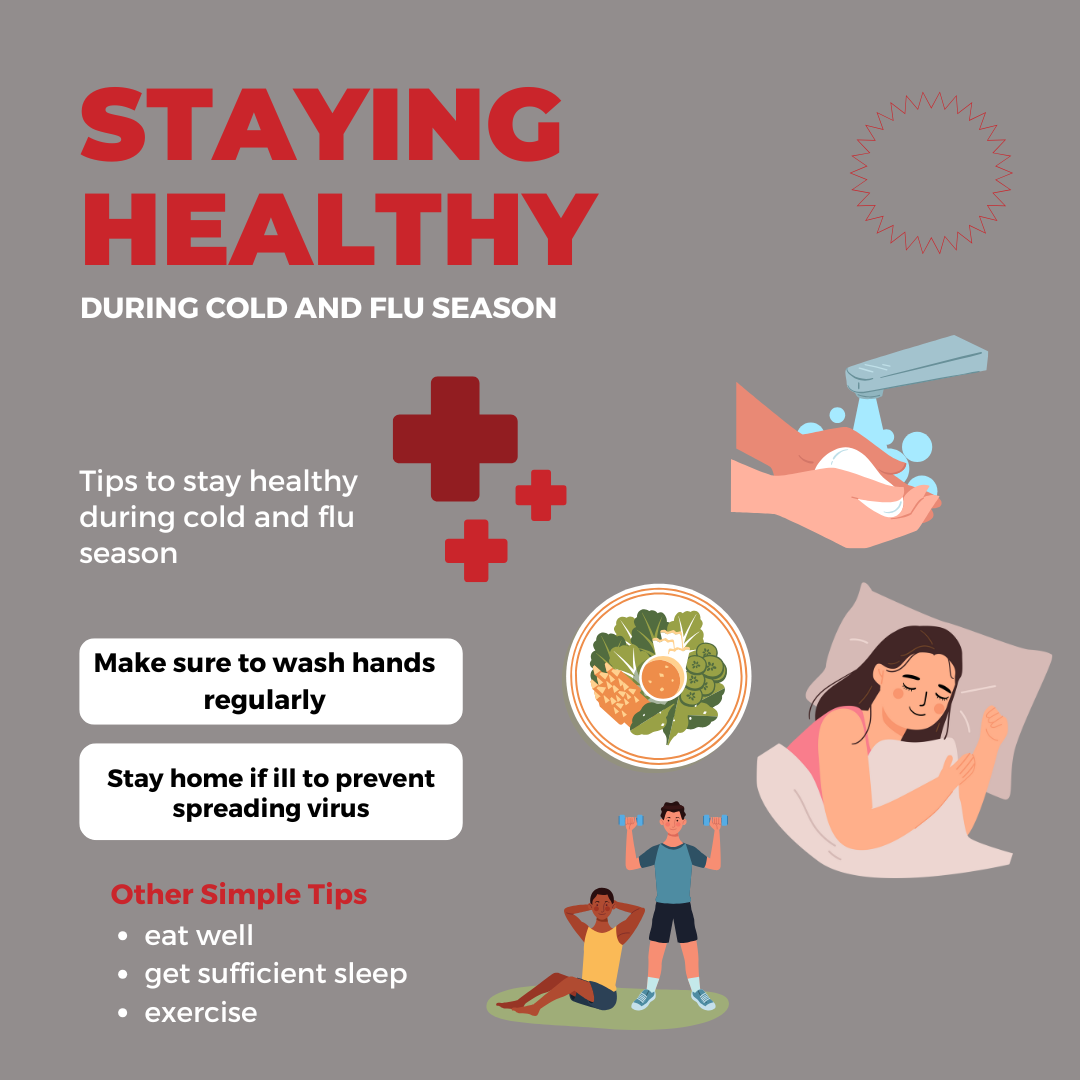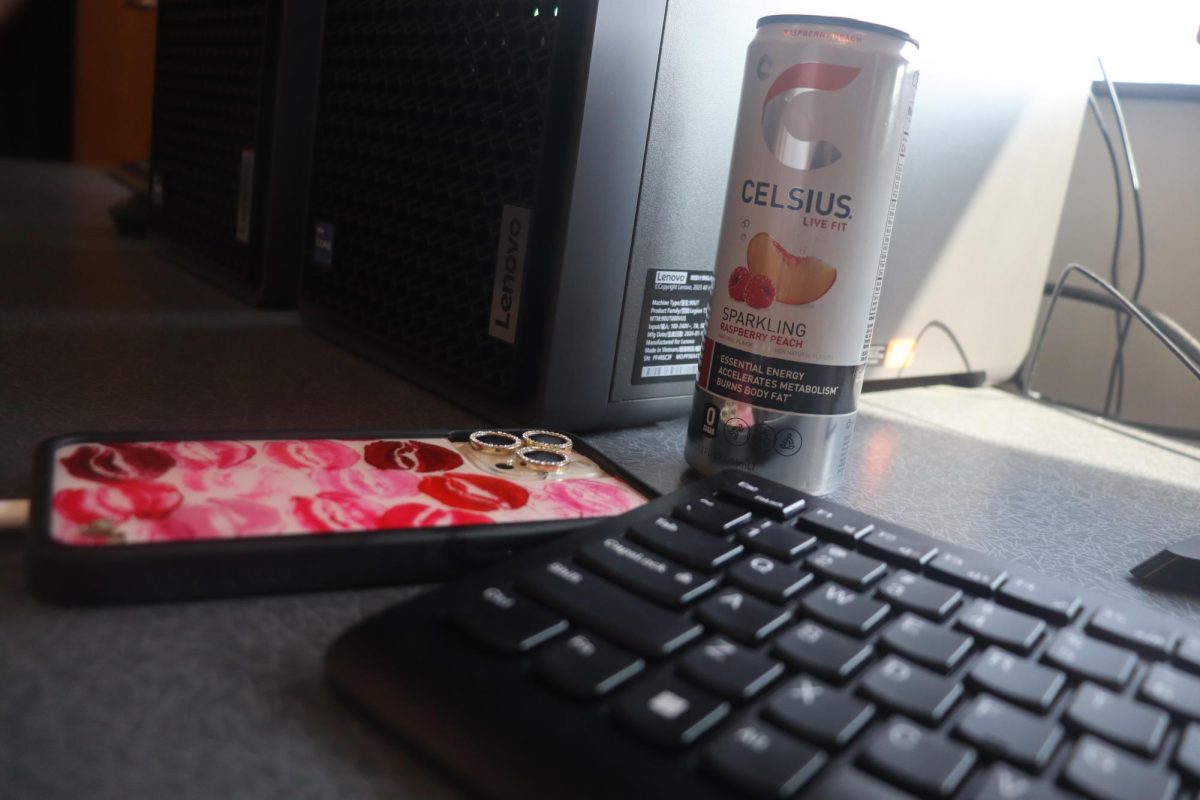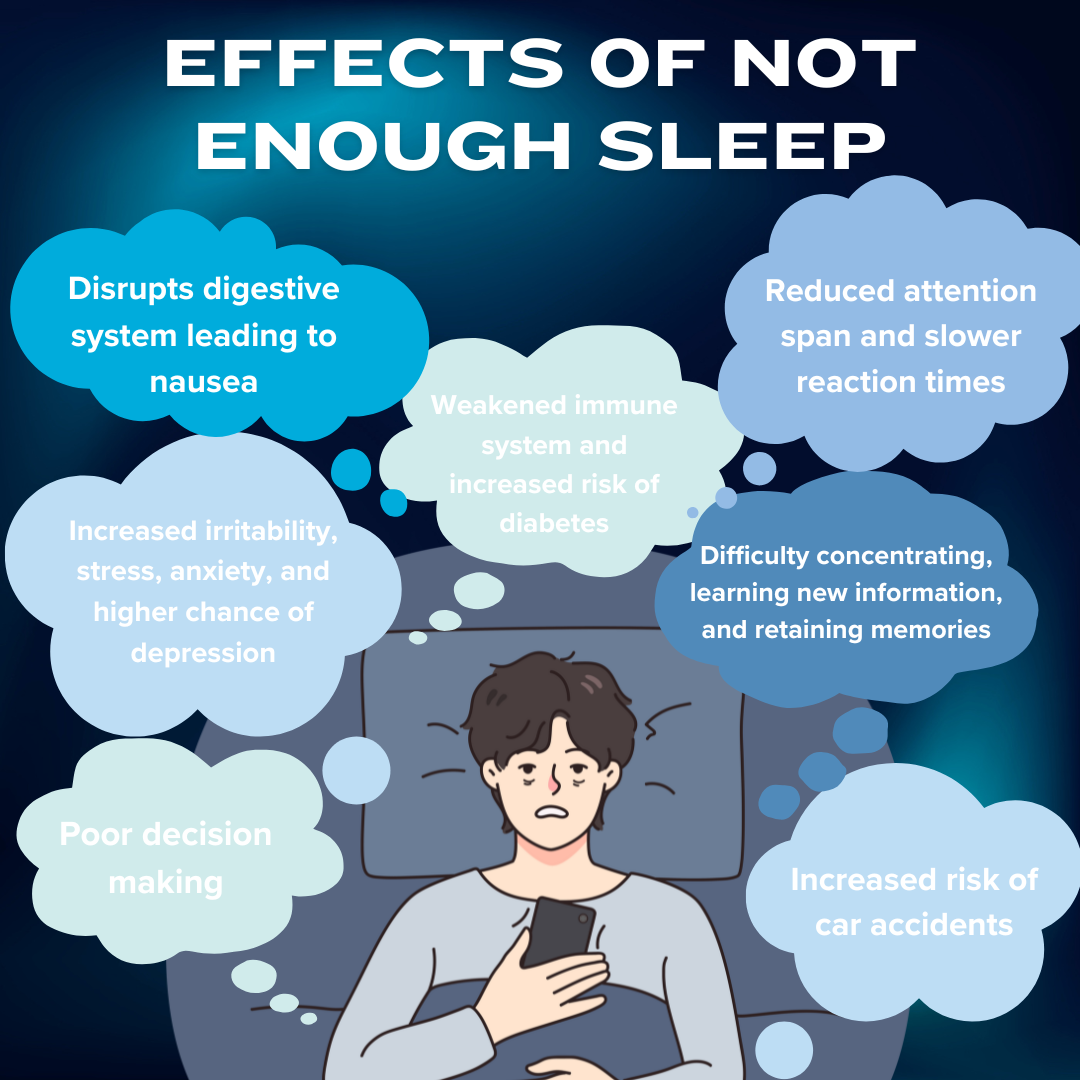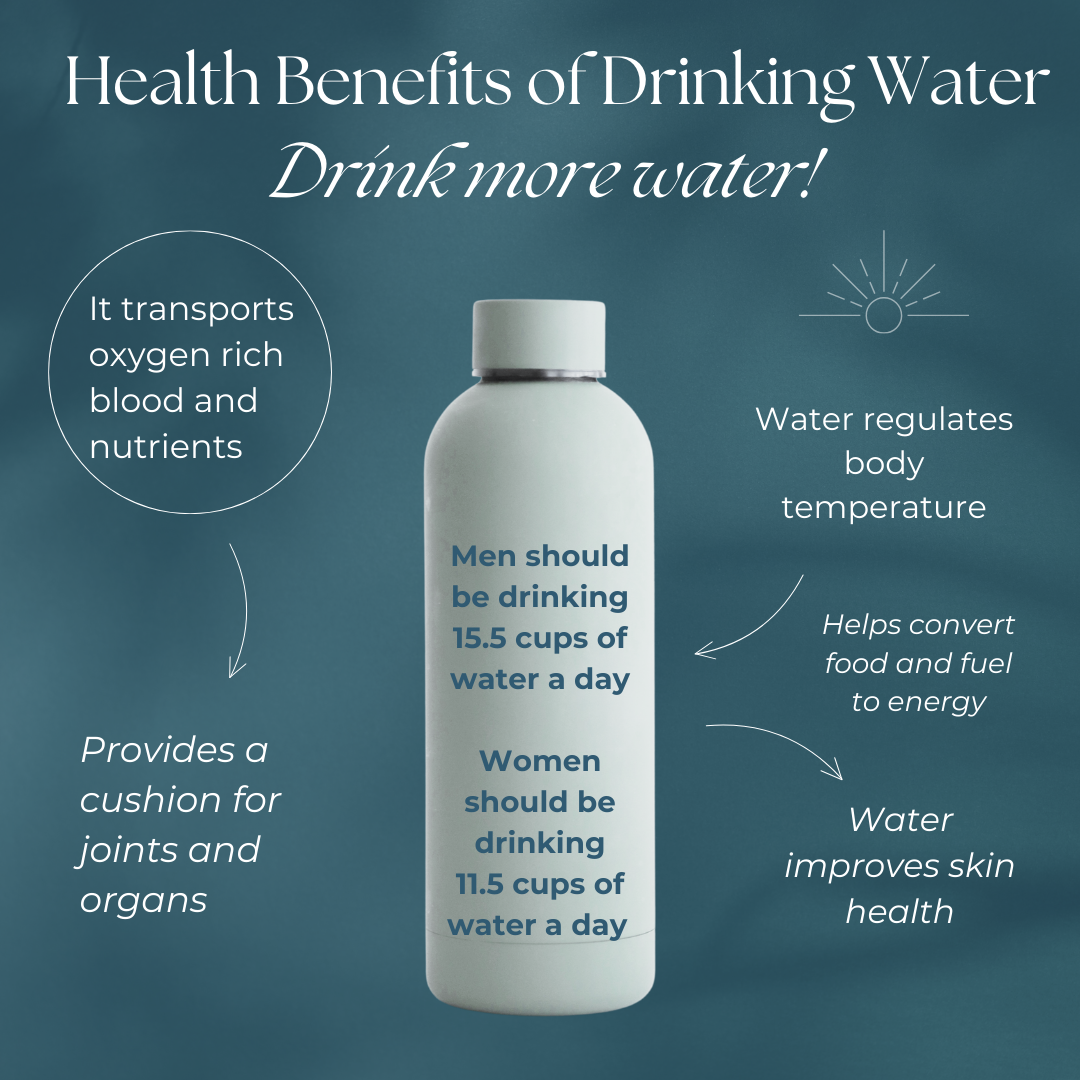Almost 73 percent of students do not get the recommended 8-10 hours of sleep. Sleep is essential to maintaining a healthy mental and physical well-being and it is often sacrificed for homework and social media. Gaining a larger understanding of the impacts of sleep deprivation is important because it effects the lives of teens more than they may realize.
A more immediate and obvious impact is an increase in irritability, stress, and anxiety. Sleep regulates mood and controls emotion and without enough of it, the brain struggles to function properly. Also, not sleeping enough can increase the risk of depression later on in life.
In addition, lack of sleep impacts reaction times. It increases the risk of accidents when doing simple everyday tasks. Studies have shown that sleep-deprived people have slower response times, which can be dangerous when driving to school in the mornings. Without enough sleep, the brain as a more difficult time retaining and processing information, leading to difficulties with concentration and memory. All of these negatively impact performance in work and school.
Sleep-deprivation does not just affect the brain, it impacts the entire body. Sleep plays an important role in producing proteins that fight off bacteria. With a weakened immune system, it is harder for the body to defend itself against illnesses as simple as the common cold. Also, sleep helps regulate blood pressure and heart rate and without it, those processes are disrupted.
Sleep is one of the most important things you can do for your health. It affects everything from brain function, to mood, and immune system. By making sleep a priority, it improves overall wellbeing, and maintains a healthy lifestyle.





























